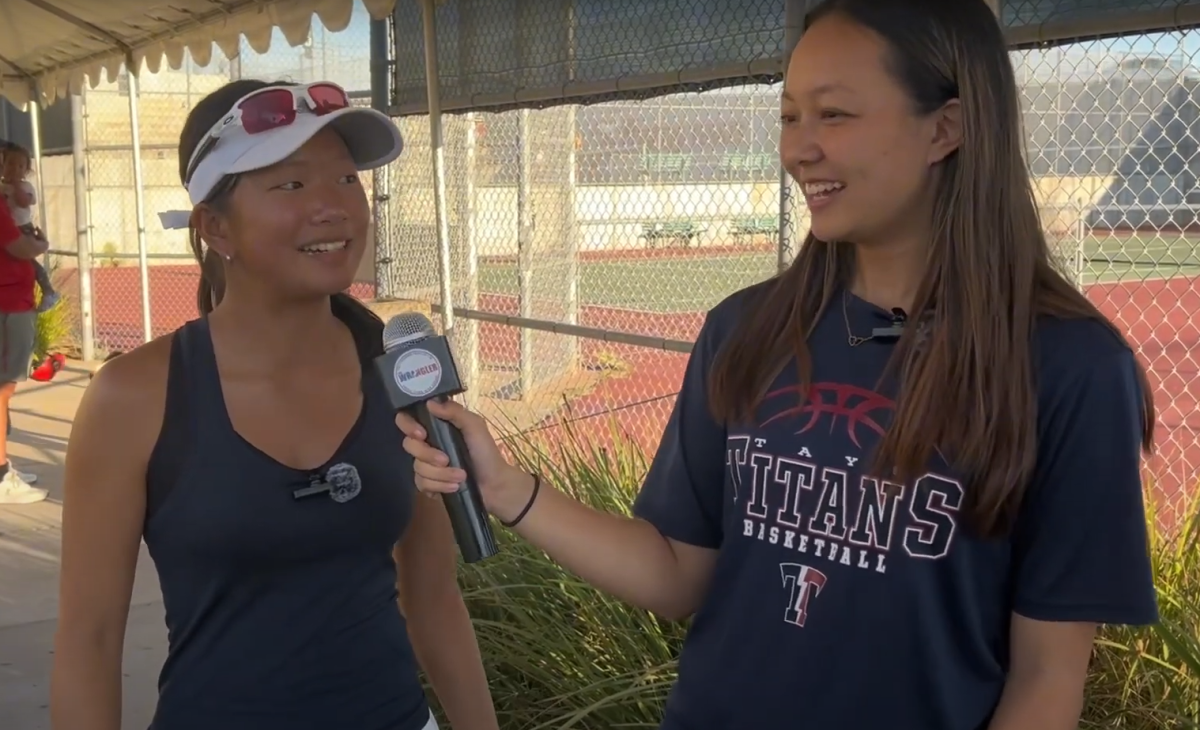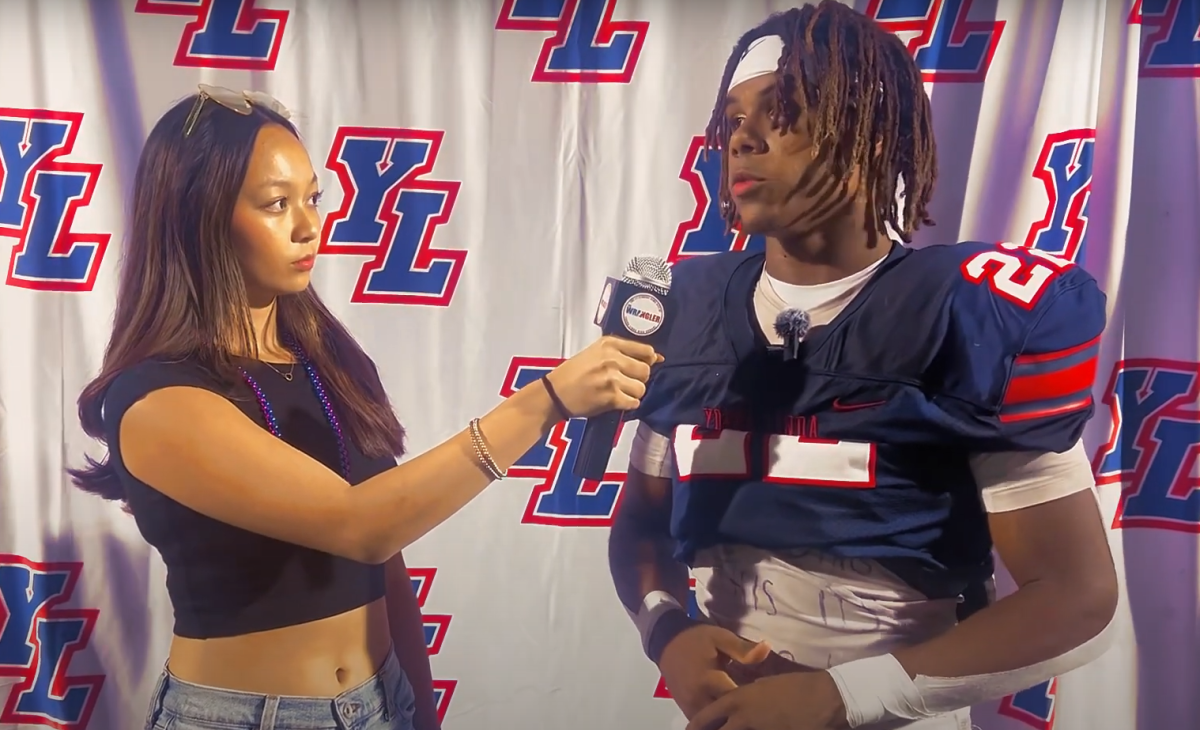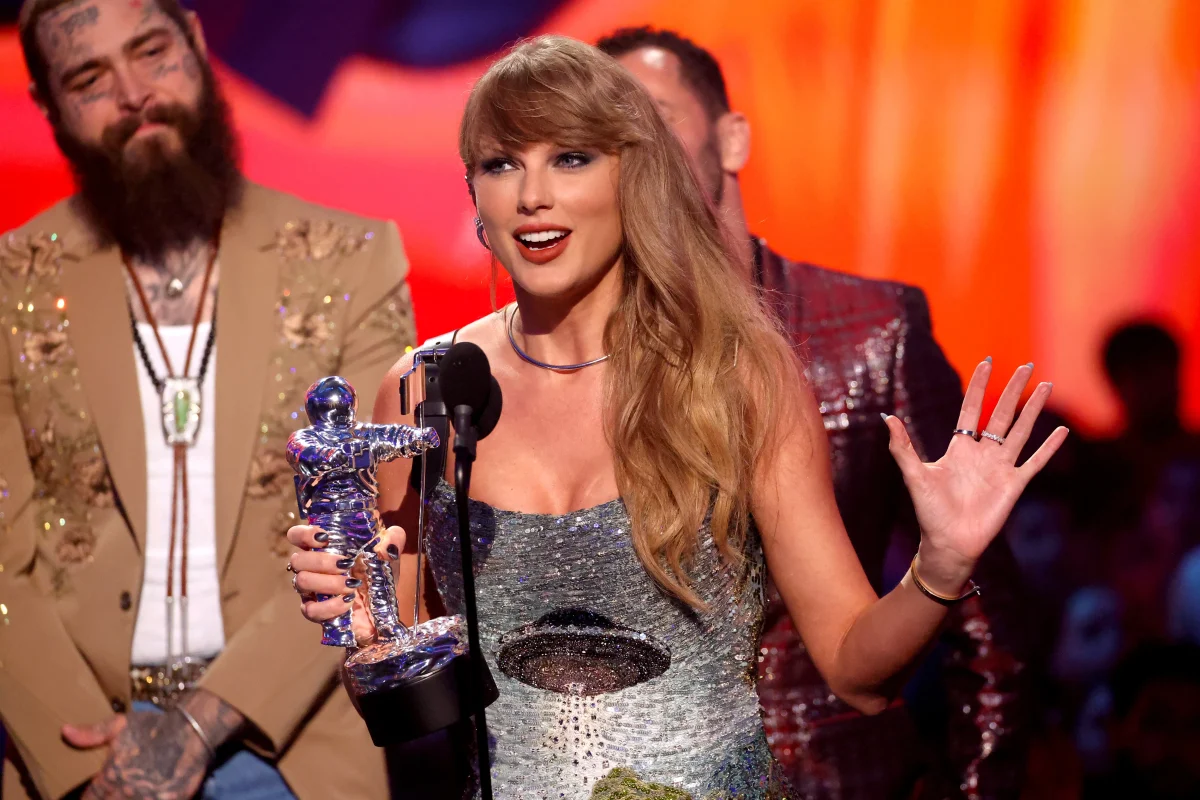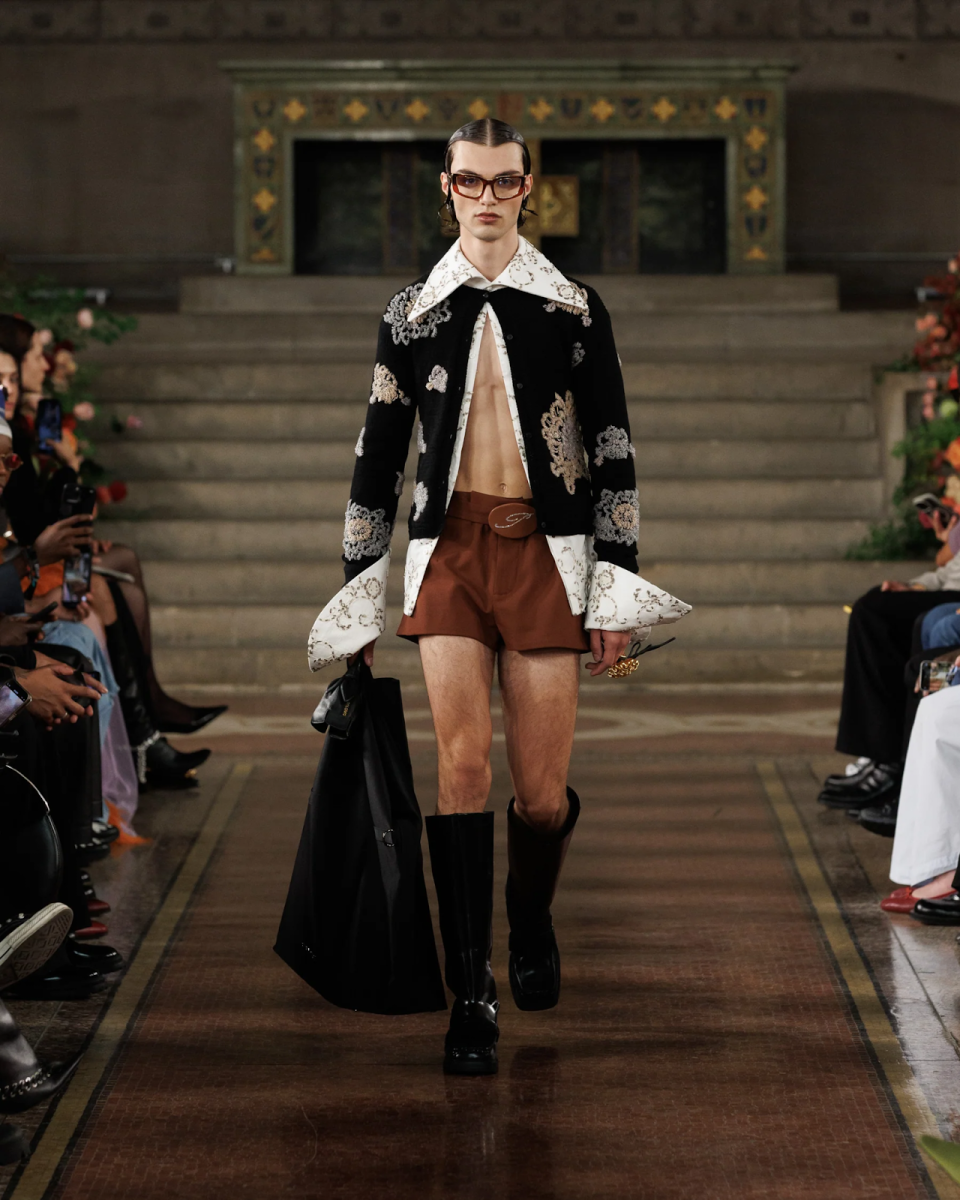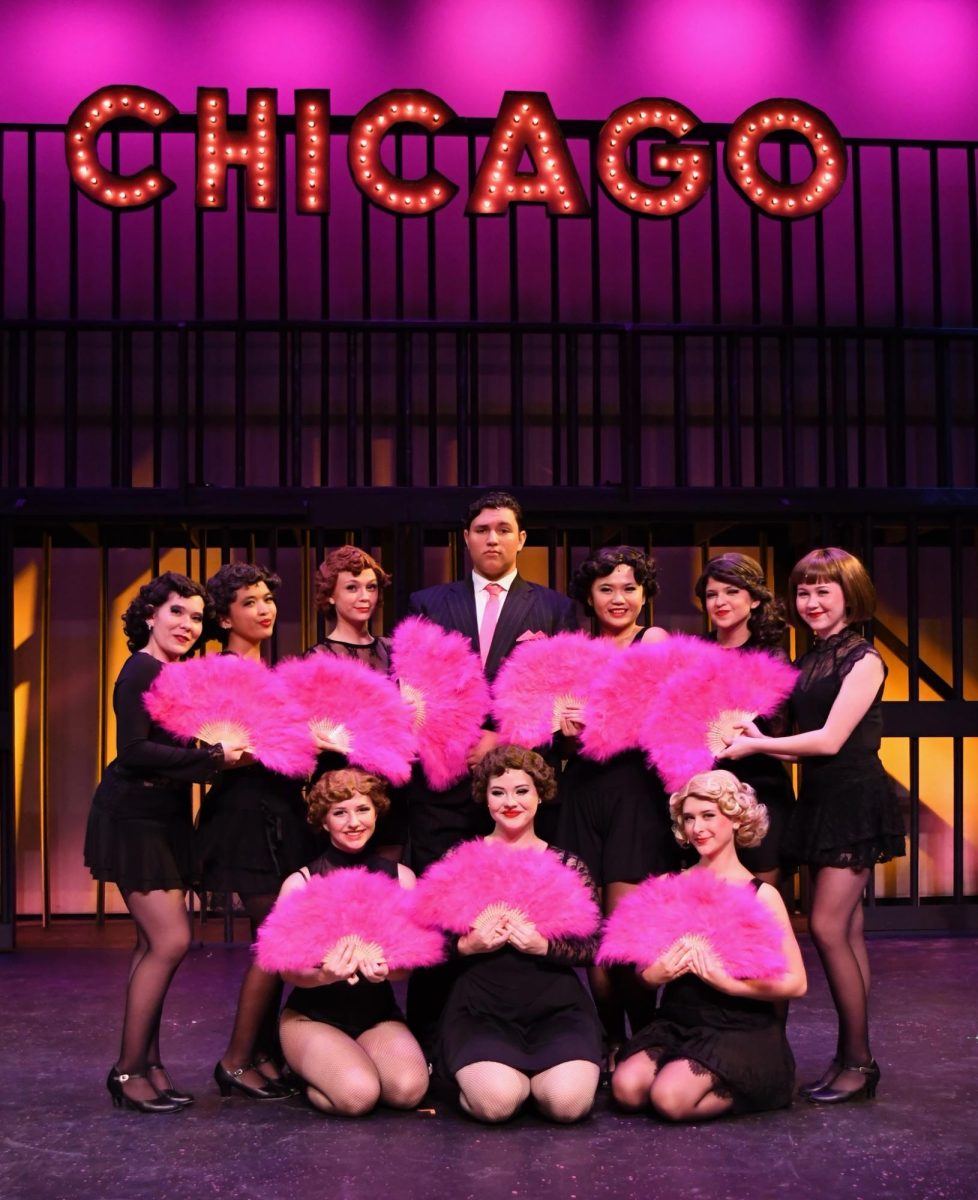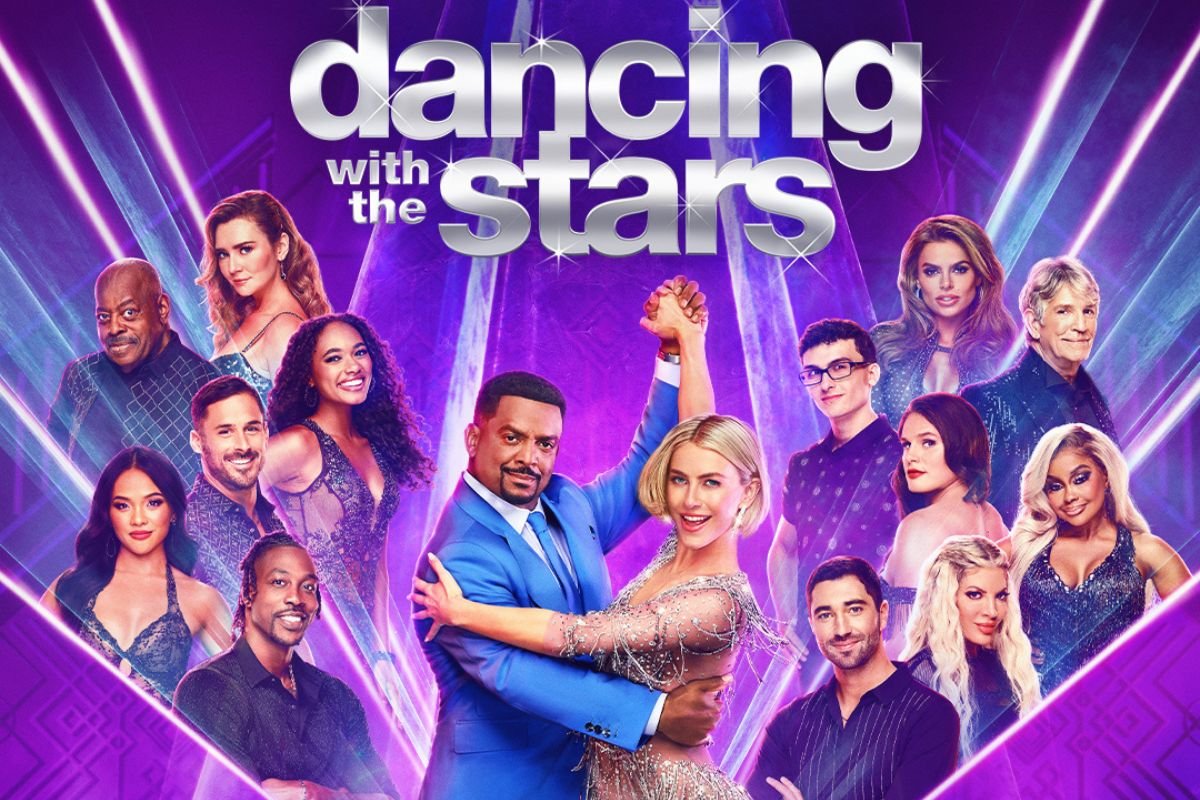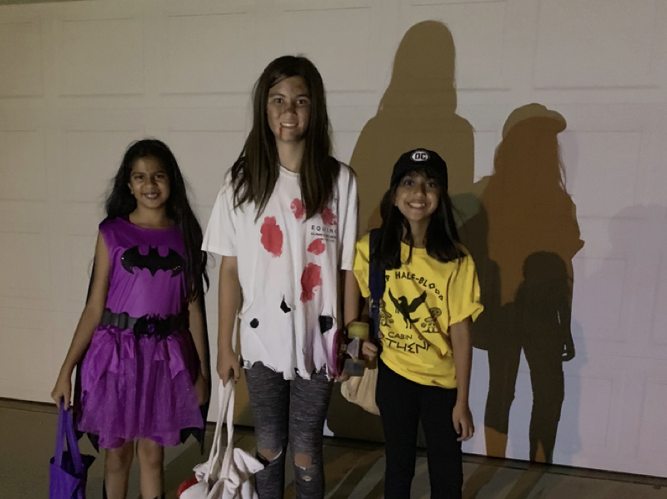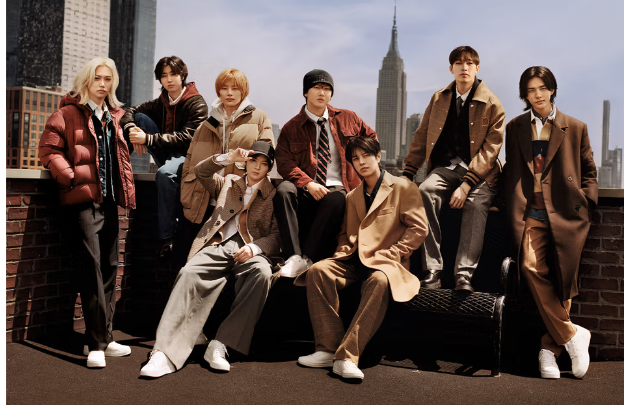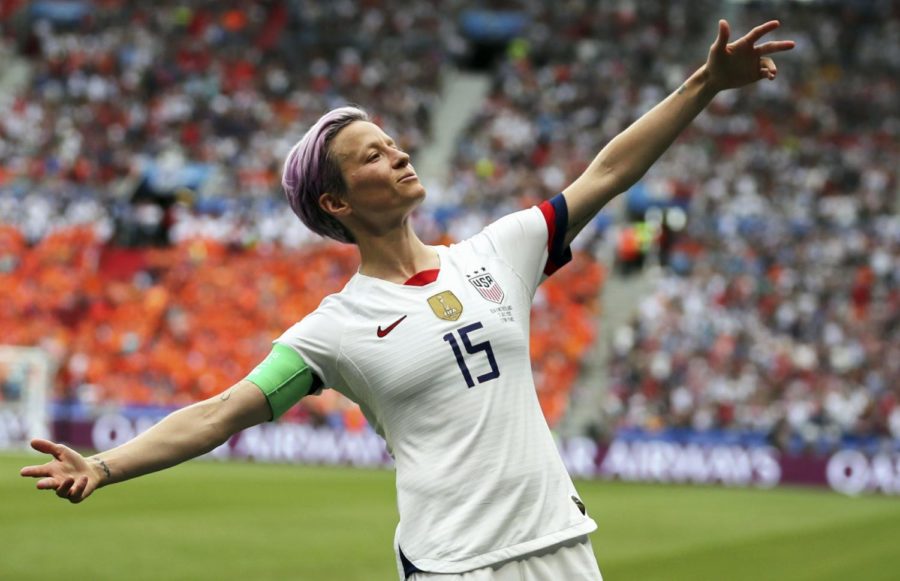Women’s Soccer Equal Pay Lawsuit Comes to a Close
A photo of Megan Rapinoe in her typical post-goal stance. Rapinoe once famously proclaimed that “you are not lesser if you are a girl” in her pursuit for gender equality (CBS). This statement is contradicted by her current position, however, as she no longer campaigns for female gender equality, but female gender superiority.
March 6, 2022
In July of 2019, the American women’s soccer team won the World Cup after an intense road to victory. Although the games were contentious matches of strenuous efforts across the boards, the Americans were able to pull through with a much-needed victory during their final game. While the first hour of the final game remained a back-and-forth rally, where neither the Netherlands team nor American team were able to score, forward Megan Rapionoe and midfielder, Rose Lavelle were able to score in the final minutes of the game.
The moments following the match were a blur. The crowd erupted, as the 57,900 Americans who attended the match celebrated their team’s victory in a passionate moment of bliss. The players embraced and cheered louder than they had all season. Coaches threw their clipboards to the ground in a scene of triumph. A feeling of pure American pride electrified the air, and the simple celebration lasted for several minutes.
It ended, however, when a fan decided to change the celebratory chant. Rather than praise the players for their impressive game, this fan shouted. “Equal pay! Equal pay! Equal pay!” The rest of the Americans followed suit almost immediately, and within seconds, almost 60,000 American soccer fans were screaming “Equal pay!” with a modicum of passion, This sentiment was in reference to a movement that began in American Women’s soccer in 2016. Campaigning for “equal pay,” these women believe that the American Women’s Soccer team should be paid identical salaries, regardless of their performance or popularity (NPR).
In the post-conference following the final game, teammates were interviewed and asked questions regarding the tsunami of “Equal pay!” chants that emerged following the game. Rapinoe, a self-proclaimed champion of feminism and women’s rights, took the opportunity to express her support for the cause. In an appearance on Jimmy Kimmel Live, several days following the World Cup win, Rapinoe stated that the US Women’s team should not only receive the same salary as the male team, but in fact make more.
This widespread movement transitioned into a highly-publicized lawsuit where 28 female soccer players sued the American Soccer League, as they claimed to be “consistently paid less than their male counterparts despite superior performance on the field” (NPR). For three years, this case was passed around throughout local and state courts, and many thought that this case would simply fizzle out.
In May of 2020, a District Court judge in California dismissed the idea that women have been underpaid in comparison to the salaries of men. Although he did rule that the claims of unequal treatment in the world of travel, medical staff, and training did hold some merit. Furthermore, Judge R. Gary Klausner stated that the pay structures for American men and women in soccer were inherently different, per the agreement of women. The women’s team operate under a “pay structure that includes more security in the form of negotiated annual salaries, maternity and child-care benefits, and severance pay when they are no longer on the team” (Washington Post). Men, on the other hand, opted for a salary model that is commensurate with the number of games that they win.
The only problem is that women were not being underpaid on the basis of sex. If the stipulations of the contract were plainly opposite, then any pay rate difference has nothing to do with gender. Because the men’s team operates under a pay-for play model, they would hypothetically earn less than women if they were to have a rough season.
Last Tuesday, however, women’s soccer made headlines once again, as their case was finally settled for $22 million, only $45 million short of their desired $67 million (CNN). Furthermore, the American Soccer Federation agreed to equalize male and female salaries going forward. This settlement extends to the World Cup, where all players –male or female– who play in the world cup will now receive equal payments.
This verdict excited women across the nation, and some men even took pride in the court case victory. One man, in particular, found this verdict particularly exciting. President Biden took to Twitter to pledge his support for the ideals of the women’s soccer team, quoting that the settlement was a “long overdue victory in the fight for equal pay” (Twitter ).
As a woman, I see this “victory” as the opposite of empowering. I look upon the actions of Rapinoe and all of the women who sued the American Soccer Federation with great antipathy. I feel as though the women of this lawsuit used their gender as an excuse to make more money than their career choice entitles. I believe that this entire lawsuit was baseless and makes women appear whiny and incapable.
Not all women share my views. Sydney Fried (12), a varsity female soccer player at Yorba Linda High School has praised the settlement for its transformative elements. She was beyond excited about the final verdict, and she lamented that the national team “has worked so hard and definitely deserves it.”
The equal pay controversy has been an American fan favorite for the past several decades, and this lawsuit, in no way, will end it. Passionate feminists will continue to plea for complete gender equality, and others will continue to pursue gender equality from the opposite standpoint. While this lawsuit is a national headline and famous case, it will have little effect on the social standings of the nation. After all, as Megan Rapinoe said, “This is just the beginning” (NBC).





